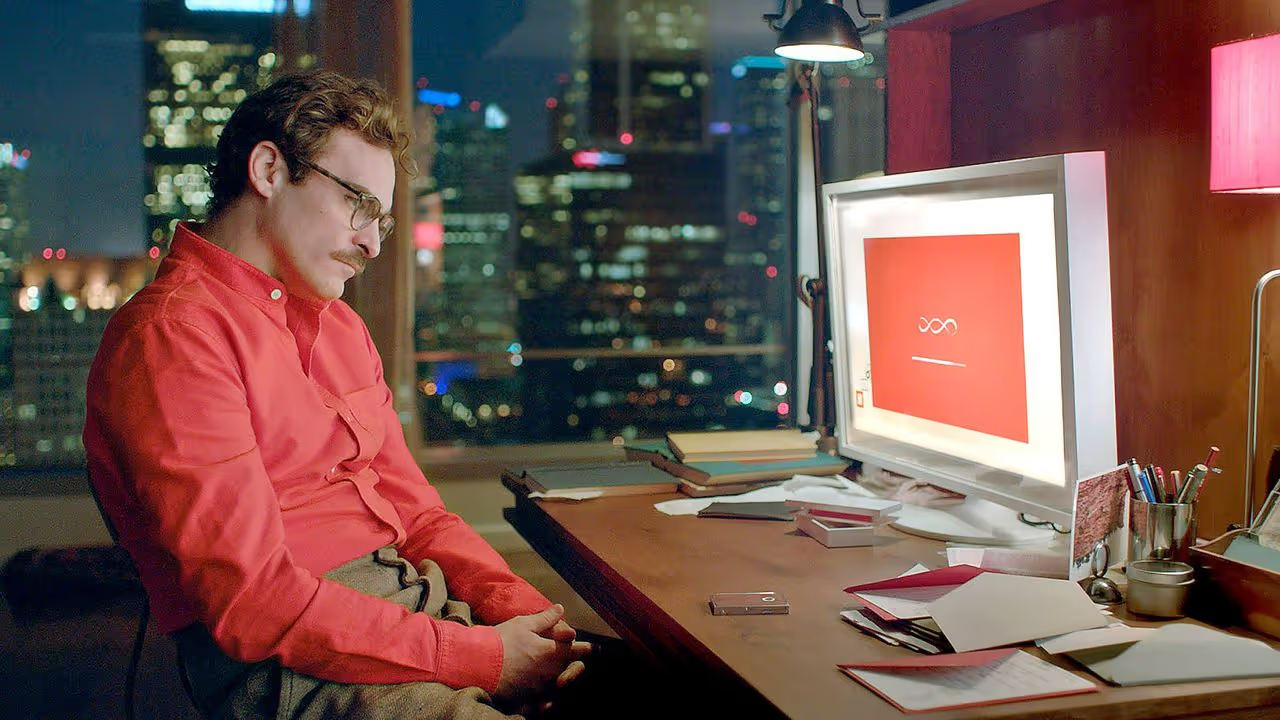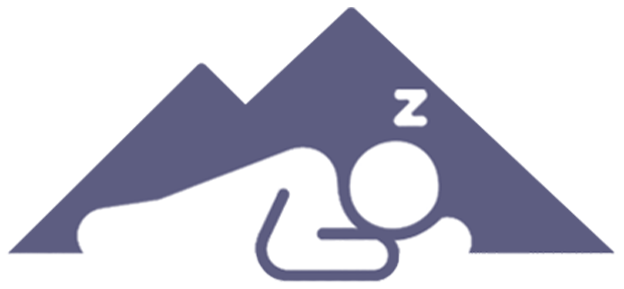You Are Not Alone 🫵🏽

Table of Contents📝Survey + Subscription Giveaway🧠 Why You Should Never Sleep With Your Phone (ft. Jack Winston)PAID: 🫂You Are Not Alone 🧂More Salt, Not Less
Subscription Giveaway! 💸
📣Hey readers! I’m giving away FREE 3-month trials + subscription extensions!
All you have to do is complete the content survey below. Nothing boring! And it’ll only take a few minutes, so don’t worry.
I want to know what you’re interested in reading about. Is it:🎙️Helpful content from social media🧬What’s happening in science📝 Insights from my personal experiences💙Wellness tips and tools for happiness
This survey will grant you an automatic three-month premium subscription to Down to Earth, or an extension if you already have one.
It will also help me write content that better suits your needs.
Thanks for your help.
-Red

🧠 The Science Behind Why You Should Never Sleep With Your Phone
(featuring Jack Winston of BePresent)What’s the first thing you look at in the morning, and the last thing at night? You want to say your pet or your partner, but it’s probably your phone, right?
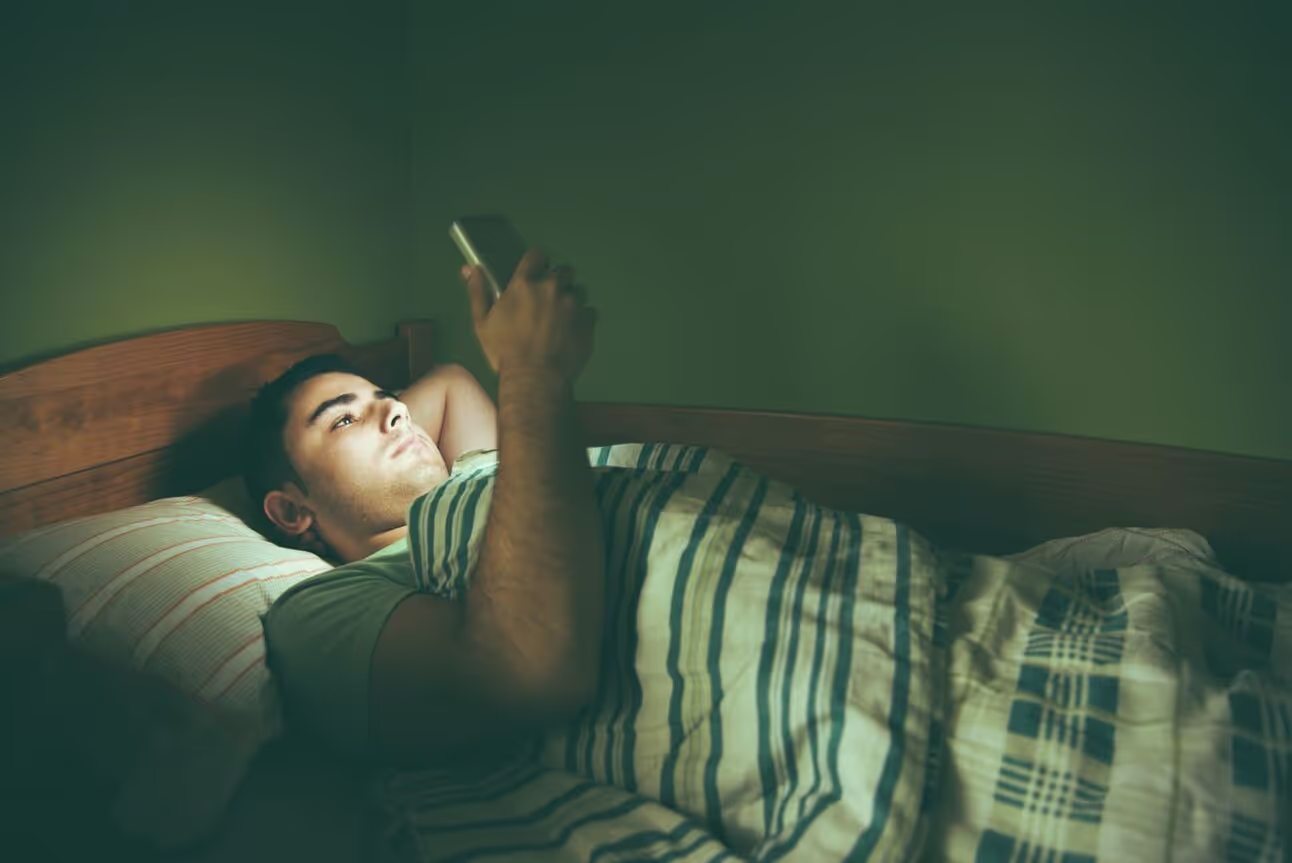
Screen time in bed is like dinner in the bathroom. Bad mix.
It’s a habit that’s super hard to break, and it’s more than your willpower — it’s psychology. Our addiction to our phones has been intentionally engineered by social media companies using decades-old psychological techniques. And it primarily relies on one simple chemical: dopamine.
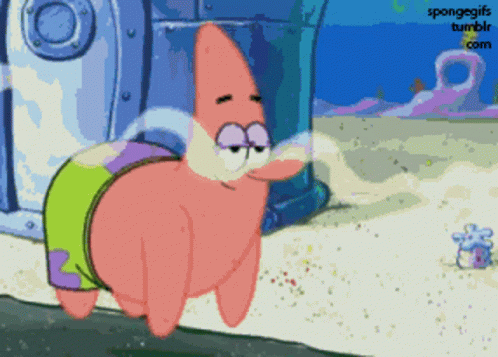
Commonly misunderstood as the “pleasure” chemical, dopamine is actually the “motivator” chemical because it's what's released in the 𝒂𝒏𝒕𝒊𝒄𝒊𝒑𝒂𝒕𝒊𝒐𝒏 of a reward. Through various techniques, the apps on our phones constantly trigger dopamine release in our brains. As our brains release more and more dopamine, we get motivated to search for more.

The infamous reload icon is designed like a slot machine, making you anticipate more content.
The constant dopamine hits and overstimulation from scrolling on our phones is a vicious cycle - after getting our first hit, we want another. Then we want more. And more. And more. What can we do to intervene in this cycle? My strongest advice is to not sleep with your phone next to your bed.This is because we have the most self-control in the morning. Delaying your phone use, and the dopamine hits that come with it, allows for more self-control throughout the day. I.e. it's harder to stop than to never start at all. If you can, buy an old-school alarm clock, and leave your phone in another room when you go to bed. If you must use your phone before completing your morning routine, put it on airplane mode. — I aim for at least one phone-free hour in the morning. 𝐀𝐫𝐞 𝐲𝐨𝐮 𝐚 𝐧𝐨𝐭𝐨𝐫𝐢𝐨𝐮𝐬 𝐞𝐚𝐫𝐥𝐲 𝐦𝐨𝐫𝐧𝐢𝐧𝐠 𝐬𝐜𝐫𝐨𝐥𝐥𝐞𝐫? 𝐇𝐚𝐯𝐞 𝐲𝐨𝐮 𝐜𝐮𝐭 𝐭𝐡𝐢𝐬 𝐡𝐚𝐛𝐢𝐭 𝐨𝐮𝐭? I want to hear how this habit affects you, and what you've tried to curtail it.

You Are Never Alone 🙆🏾♂️
We all feel stress, and we tend to experience it in a very personal way.
There's a notion that it's only us experiencing the stressful event, or that we’re subjected to stressful situations more often than others.
We have the idea that “nobody is more stressed out than me right now.”
Though this idea is very natural and normal, it can be isolating and exacerbate feelings of stress.
It’s hard for the brain to operate like this.
Allowing yourself to reframe your experiences can be most beneficial.

It’s easy to feel alone. But are you?
How to Deal With Stress 🥊
In moments of high stress, first pause and notice how you feel emotionally and physically.
Then, shift your perspective away from yourself. Leave the “woe is me” mindset behind. Instead, think of others who may be having the same kind of stressful situation, or have experienced one in the past.
That’s a lot of people, right?
As a child, you may have been told that the less fortunate have it much worse. This is that same idea, gently pulling you out of that isolation.
“A problem shared is a problem halved.”
So we’re by no means ignoring how you're feeling, instead, we are acknowledging your experience, and seeing what it feels like to shift into a space of empathy.
This practice helps in letting go of stress and also helps in your relationships with others.
It’s the quickest route to understanding and peace.

The more you see, the more you may understand.
By expanding our awareness and shifting into a space of empathy, we're able to transcend the confines of our mind and emotions, better processing stress.
You may find that your stress levels have actually decreased.
In addition, we're training the mind in empathy, compassion, and awareness. It connects us to the people around us and all living things throughout the world.
As much as it might feel like we’re the main characters of this TV show, we aren’t. It’s an ensemble cast, and playing our part in good faith is about the best we can do.

U Salty Bro? 🧂
I’ll bet you’ve been told to ease up on the salt.
“Stay away from it!” They shriek. “It’s bad for ya heaaart!” Cries Grandma.
But today, we’re dispelling all rumors surrounding the mineral of life, instead learning how it can supercharge our workouts and focus sessions.

They used to fight wars over this stuff.
If you’ve been paying attention, a cornerstone of this newsletter is debunking notions of conventional wisdom that aren’t serving us well. That continues here.
🤨 Why Salt?
- Sodium: A key component of salt, sodium is crucial for the proper function of muscles and nerves. It acts as an electrolyte, facilitating electrical impulses in the body. Your brain wouldn’t be able to function without it.
- Hydration Balance: Salt plays a critical role in keeping you hydrated. It’s the hydrating part of sports drinks. If you work out, live in a hot climate, or sweat a lot, listen up. Higher salt intake is critical for people like you. It replaces the salt you’ve lost through sweating. It also helps to prevent hyponatremia, aka low blood sodium levels.
- Health Treatment: Increased salt intake can assist with blood flow conditions like POTS, (a condition that leads to an abnormally large increase in heart rate when standing up) Addison's disease, and cystic fibrosis. I’ve personally noticed more alertness, focus, and ease of tension in the two years since taking more salt.
The bottom line: Unless you have chronic hypertension, a little more salt is good.
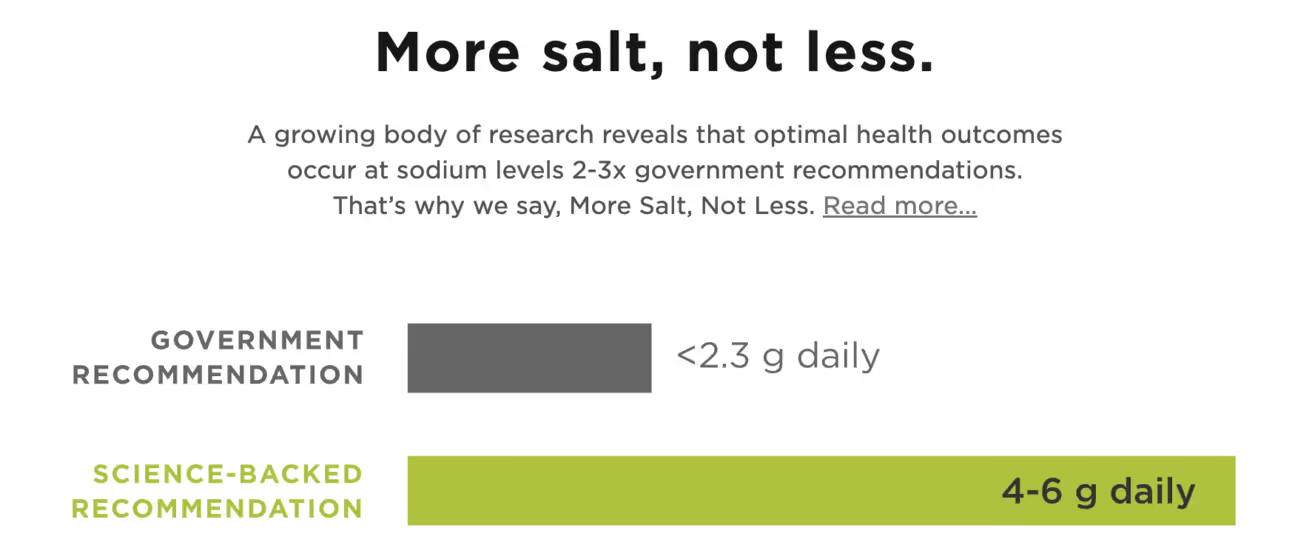
Using Salt To Your Advantage 📈
For a morning boost, try a generous pinch of salt in your water. That’s sure to perk up your workout, lock you into focus, and replace any lost salt throughout the day. It’s like a Gatorade without the Red 40.
Why? It's the best quality salt out there because of its high mineral content and low processing. It has an exquisite taste. If you like the ocean, you’ll love this stuff.
I don’t recommend Himalayan Pink Salt because it often contains microplastics and heavy metals. The sourcing with this kind of salt is tricky at best.
❌Table salt is an absolute last resort — it’s bleached, highly processed, and unpure. I don’t like that synthetic taste in my food either.
If anyone ever gets on you for adding extra salt to your water or food (and trust me, they will) tell them just like this: don’t be so salty!
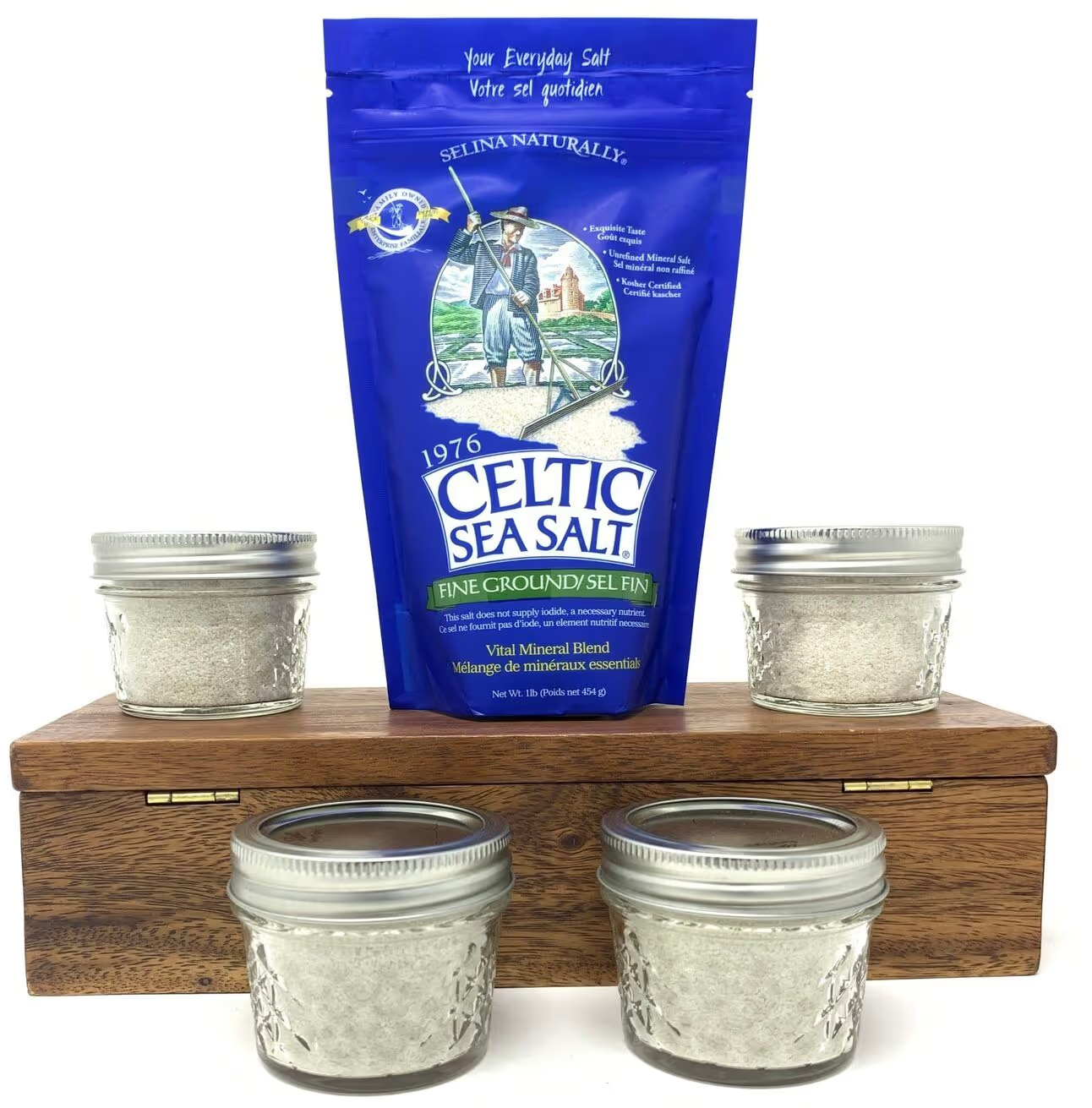
Thank you for reading Down To Earth 🌍
If you appreciate my work the way I appreciate your reading, forward this email to someone you love!

